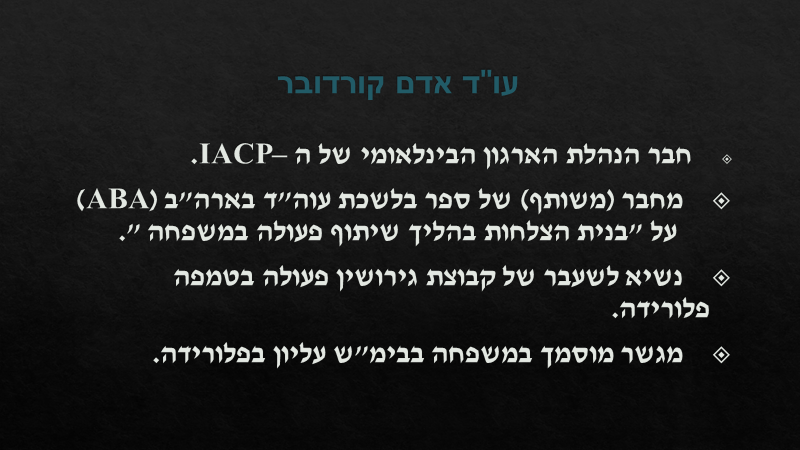Cordover Receives FACP Inaugural Visionary Award
At the Florida Academy of Collaborative Professionals‘ (FACP) 8th Annual Conference, Family Diplomacy managing attorney Adam B. Cordover was awarded the inaugural Visionary Award. The FACP presented this award to recognize Cordover’s work in developing, co-chairing, and co-instructing the inaugural FACP Leadership Institute.
FACP Leadership Institute
In 2014, Cordover graduated the first ever Leadership Academy of the International Academy of Collaborative Professionals. Since that time, he dreamed of bringing a similar program to Florida.
In 2018, he proposed to the Board of the FACP a one-year intensive course of study to develop future leaders of Collaborative Practice. Collaborative Practice is an interdisciplinary form of out-of-court dispute resolution where professionals work with families in a private, goal-oriented, non-adversarial method. It is an alternative to traditional court-based divorce and other family law matters.
Orlando psychologist Deborah Day and Barrie, Ontario lawyer Brian Galbraith joined Cordover to build the program. As conceived, it would come to consist of three in-person meetings (though, due to current times, the last meeting was held via Zoom) throughout the year, and bi-monthly webinars led by leaders of Florida and International Collaborative communities. Participants (who would come to be known as “Fellows”) of the Leadership Institute would be expected to present a workshop at an FACP conference.













